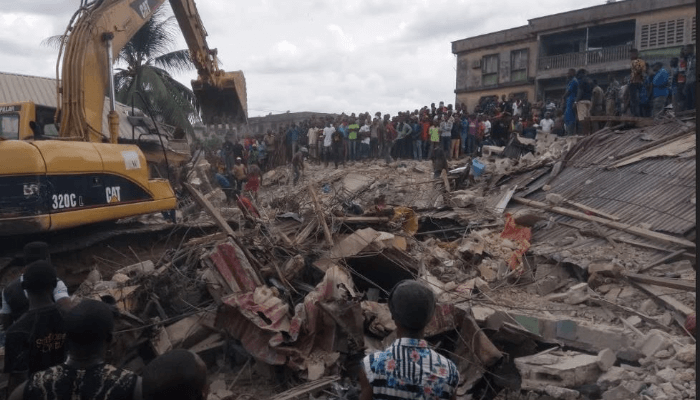Across Lagos, a wave of demolitions is sweeping through neighborhoods, turning homes, businesses, and livelihoods into piles of rubble in the name of urban renewal.
As bulldozers roar through Allen Avenue, Opebi, Ogba, and Itire-Ijesha, they leave behind broken dreams, shattered investments, and unanswered questions. The state government insists that these demolitions are necessary to create setbacks for road expansion and improve mobility, but for many affected residents, the losses are too painful to bear.
The most recent wave of destruction has particularly hit Allen Avenue and Opebi, where both old and new structures deemed “too close to the road” have been reduced to debris. Buildings—big and small—have not been spared. Along the stretch from Ogba to Cele underbridge, shop owners and homeowners alike have watched helplessly as their properties are razed, with many still struggling to come to terms with their new reality. Some, in a bid to move forward, have begun rebuilding “where the law permits.” Others, however, are demanding answers from the government, particularly about the timing of the demolition exercise.

For one business owner who lost his shop, the pain is still raw. “Why would you choose to demolish houses and shops at this time of the year?” he asks angrily. “Of all the days in the year, the government picked the festive season when businesses are supposed to recover losses and make profits. How does that make sense?” He recalled that residents were informed just two weeks prior that their properties would be affected by the planned road reconstruction. Though he acknowledged the need for development, he strongly disagreed with the approach. “We are asked to invest in Nigeria, but then they turn around and destroy our investments. How do people in the diaspora trust a government that makes doing business so difficult?” he lamented.
The state government, through its Commissioner for Transportation, Oluwaseun Osiyemi, has hinted that affected property owners may receive compensation. However, skepticism remains high. Many recall similar promises in the past that never materialized. Osiyemi recently visited the area, inspecting demolished structures and assessing potential compensation claims, stating that the road project would ultimately enhance traffic flow and improve connectivity.
Demolition has become a frequent and painful reality in major Nigerian cities, particularly Lagos and Abuja, where housing shortages and homeownership challenges are already severe. Professor Timothy Nubi, Director of the Centre for Housing and Sustainable Development at the University of Lagos, describes the trend as deeply troubling. “Despite the economic hardship faced by citizens, we have seen more bulldozers than cranes in recent years,” he noted. He further revealed that between 2022 and 2024, approximately 10,000 buildings were demolished in Abuja alone, amounting to trillions of naira in destroyed investments.

For the people of Lagos, the destruction of homes and businesses under the banner of development raises a painful question: At what cost does progress come? Many agree that infrastructure improvements are needed, but they argue that they should not come at the expense of people’s livelihoods. Without a clear plan for compensation, proper notice, and humane implementation, these demolitions will continue to leave lasting scars on communities, both physically and emotionally.



